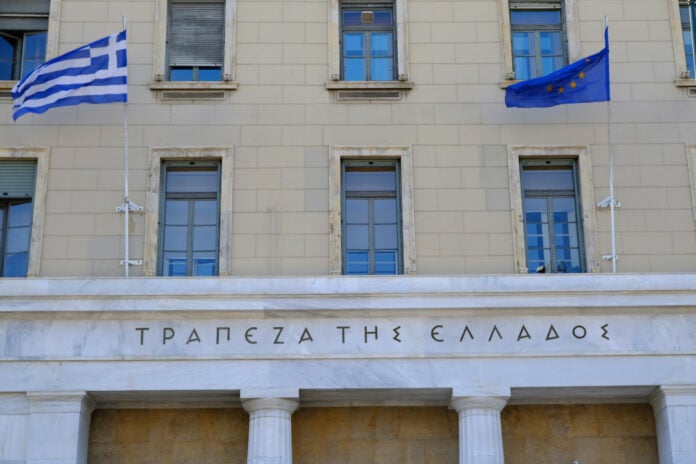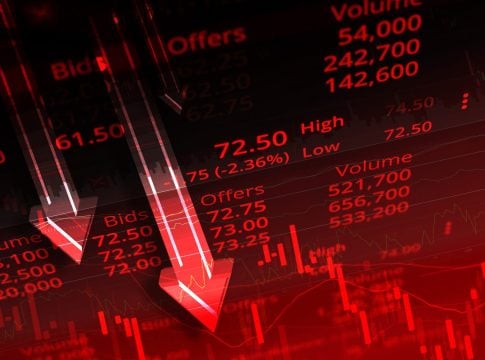Greece’s growth rate is expected to reach 2.5% in 2025, according to the monetary report of the Bank of Greece (BoG).
Based on the current forecasts, the GDP growth rate is expected to reach 2.3% in 2024, accelerate to 2.5% in 2025 and decline slightly to 2.3% in 2026 and 2.0% in 2027. Consumption will play an important role, while investments and exports will continue to contribute positively.
Overall, the contribution of the external sector to GDP will be slightly negative in the coming years, as the intense investment activity and the strengthening of consumption are expected to cause an increase in imports at rates comparable to those of exports.
Inflation is expected to drop to 3.0% in 2024, from 4.2% in 2023, reflecting a significant slowdown in food inflation. By 2026, inflation will converge towards the ECB’s target of 2%, but will remain slightly above it. Services inflation is expected to be more persistent than inflation in other HICP components, mainly reflecting expected increases in labor costs. Finally, core inflation is expected to decline significantly to 3.5% in 2024 and 3.1% in 2025.
Risks and uncertainties
The risks about the macroeconomic growth forecasts are mainly downward and are associated with:
-a possible worsening of the geopolitical crisis in Ukraine and the Middle East and its impact on the international economic environment,
-intensification of trade protectionism internationally,
-a lower-than-expected rate of absorption and utilization of RRF funds,
-difficulties in the labor market and potential wage pressures,
-a slower-than-expected implementation of the necessary reforms and
possible natural disasters due to the climate crisis.
Progress
As reported by the BoG, the Greek economy has achieved remarkable successes in recent years and has proven to be particularly resilient to various external shocks, such as the COVID-19 pandemic, the energy crisis and the war in Ukraine and the subsequent rise in inflation. The growth rate of the Greek economy has been higher than the corresponding EU average since 2019, resulting in the acceleration of the real convergence of GDP per capita with the European average. Employment is increasing and the unemployment rate has fallen to single-digit levels despite a very significant increase in the minimum wage. As a result, disposable income is increasing and the percentage of the population at risk of poverty and social exclusion has decreased between 2019 and 2023. The prudent fiscal policy followed in recent years and the efforts to combat tax evasion are bearing fruit, as high primary surpluses are being achieved without the need for restrictive measures and the public debt as a percentage of GDP is being reduced.
The BoG pointed out that the positive course of the economy in recent years has resulted in the upgrade of the creditworthiness of the Greek State to investment grade. As it emphasized, the confirmation of the progress that has been made is also reflected in the recent upgrade of the creditworthiness of Greek government bonds to BBB from BBB- by the rating agency Scope Ratings.















